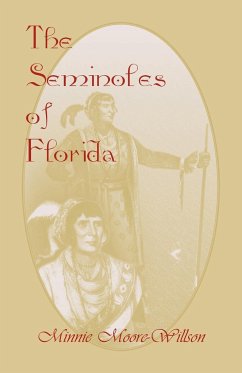When the Seminole Indians were forced to move from their native Florida to Indian Territory, some refused to go. Those remaining retreated to the Everglades and kept themselves secluded from the encroaching white population. At the turn of the 20th century, the band had increased to about 600 individuals. The author endeavors to give a sympathetic history of these people by discussing their history from their Georgia origins through the 1920s. The Seminoles were originally part of the Creek Nation in Georgia. As early as 1750, they split away and went south into Florida. When Andrew Jackson became president and instituted his Indian removal policy in the 1830s, the Seminoles initially battled to keep their land. Failing to achieve success, most were removed to Indian Territory in the area of the present-day state of Oklahoma. Focusing on the remnant band of natives who remained in Florida, the author turns to describing their situation in the late 19th and early 20th centuries. She covers such Seminole attributes as their appearance and notions of honor, as well as such customs as marriage and slaveholding. She discusses their life in the Everglades. Several biographical sketches are included, such as Osceola, "the Napoleon of the Seminoles," and Stem-o-la-kee, a woman who ventured out of the woods to meet with the author. A section on vocabulary presents a range of words, phrases, and sentences in Seminole and English. (1928, 2003), 2015, 5¿x8¿, paper, index, 366 pp.
Hinweis: Dieser Artikel kann nur an eine deutsche Lieferadresse ausgeliefert werden.
Hinweis: Dieser Artikel kann nur an eine deutsche Lieferadresse ausgeliefert werden.








